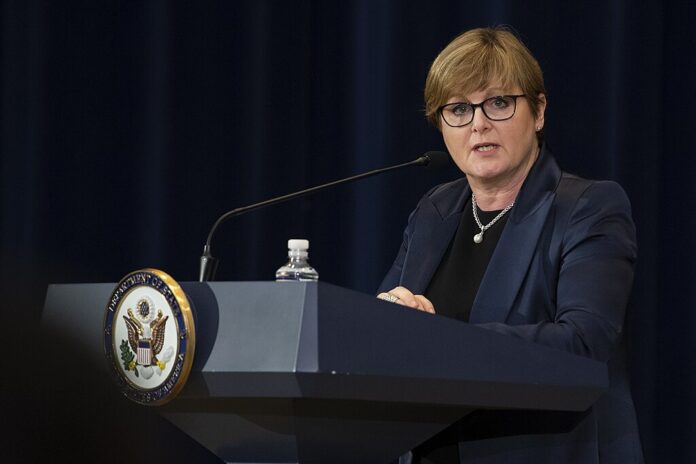Senator Reynolds accused of giving “problematic” and “self-serving” testimony as defamation feud with Brittany Higgins draws to a close in WA Supreme Court
The high-profile defamation case between Senator Linda Reynolds and former staffer Brittany Higgins is nearing its conclusion in the Western Australia Supreme Court, with Reynolds facing accusations of providing unreliable and self-serving testimony.
Senator Reynolds is suing Higgins and her husband, David Sharaz, over social media posts critical of Reynolds’ handling of Higgins’ rape allegation from 2019. The posts, made in 2022 and 2023, have been central to the legal dispute.
Rachel Young SC, representing Higgins, criticized Reynolds’ evidence as “problematic” and “demonstrably wrong.” Young argued that Reynolds’ testimony lacked reliability and was self-serving, particularly in statements about other individuals involved in the case. The court was also informed that Reynolds’ testimony included unfounded claims linking Higgins’ posts to the death of Senator Kimberley Kitching.
Embed from Getty ImagesYoung contended that Reynolds’ actions during the criminal trial and her handling of confidential material were questionable. She alleged that Reynolds leaked sensitive information and attempted to influence the public narrative unfairly. According to Young, Reynolds’ conduct extended to efforts to silence sexual assault victims through her submissions to the Sofronoff inquiry.
The case has brought attention to Reynolds’ conduct, including accusations that she engaged in harassment by undermining Higgins’ rape allegations publicly. Young noted that Reynolds had breached confidentiality by discussing private communications and undermining Higgins’ claims during media interviews.
The trial has also highlighted Reynolds’ pre-existing distress and health issues, with Young arguing that the impact of the social media posts on Reynolds was overstated. She pointed out that Reynolds had pre-existing political and personal challenges, which were exacerbated by the scrutiny from the posts.
The outcome of the case could have significant implications for public figures and their handling of sensitive allegations, particularly regarding the balance between defending one’s reputation and respecting the privacy and rights of others involved in legal disputes.
Analysis:
Political:
The defamation trial underscores the complex intersection of politics, personal conduct, and legal accountability. Senator Reynolds’ case highlights the scrutiny faced by public figures when involved in high-profile controversies, and the potential consequences of their actions on both personal and professional fronts.
Social:
The case has intensified discussions about the handling of sexual assault allegations and the public discourse surrounding such sensitive issues. It also raises questions about the responsibilities of public figures in managing and communicating about controversial matters.
Racial:
While the primary focus is on defamation and handling of sexual assault allegations, the broader implications for the representation and treatment of victims in public discourse can intersect with issues of race and diversity, affecting how various groups are perceived and treated in the media and legal system.
Gender:
The trial is particularly significant in the context of gender dynamics, given the nature of the allegations and the public scrutiny involved. It highlights the challenges faced by women in navigating legal and public spheres when making serious claims against influential figures.
Economic:
The financial implications of the defamation case are substantial, involving potential damages and legal costs. The outcome could influence how similar cases are approached in the future, impacting both individuals and public figures financially and reputationally.
